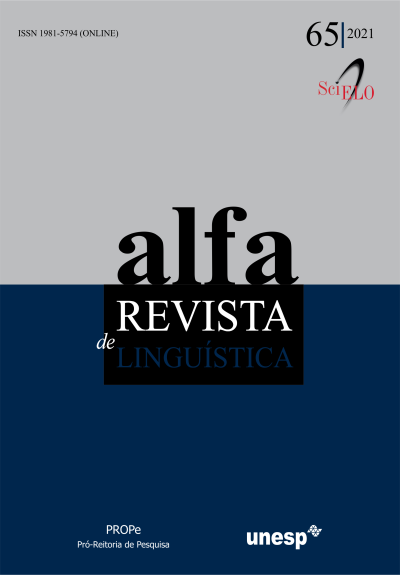The question of linguistic choice in domestic environments in a multilingual context of Mozambique
DOI:
https://doi.org/10.1590/1981-5794-e12448Keywords:
Multilingualism, Montepuez, Linguistic choice, Home environmentAbstract
The present study examined the patterns of linguistic choices in domestic environments in Montepuez, Mozambique, based on sociolinguistics approaches that deal with linguistic selection in multilingual contexts, namely the notions of diglossia and domain. The data collected through a survey. The study noted that the various languages are used in home environments, with a greater predominance of Portuguese and Emakhuwa, with no relation between the formality and the informality of the situation. Thus, in the home environment, the trend is the use of mother tongues, which include Portuguese. From a theoretical point of view, the study concluded that no approach is quite sufficiently strong to explain the phenomenon of linguistic choice in its entirety, calling for a more integrated approach. It was observed that the real context of communication is built as the interaction takes place, so it is considered a negotiation process, which occurs during and not before or after the communicative act. Studies on linguistic choices in other territorial spaces in the province of Cabo Delgado are proposed, including those subordinated to linguistic attitudes aiming to expand the information on the factors that influence linguistic uses both in Montepuez and in other regions of the province.
Downloads
Downloads
Published
How to Cite
Issue
Section
License
Manuscripts accepted for publication and published are property of Alfa: Revista de Linguística. It is forbidden the full or partial submission of the manuscript to any other journal. Authors are solely responsible for the article's content. Translation into another language without written permission from the Editor advised by the Editorial Board is prohibited.

